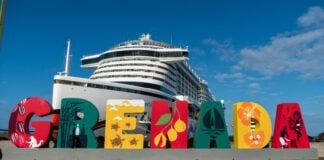For over a decade, there have been calls for the Jamaican government to update its list of national heroes. Each year, the conversation resurfaces, with names like Bob Marley, Louise “Miss Lou” Bennett-Coverley, and Usain Bolt at the forefront.
When asked on The Fix podcast whether he considers himself a national hero, Bolt responded:
“I would say yes because the amount of people that see me and say ‘what you do for the country, we love it and it make ghetto yute wah do better.’ The overwhelming support and how people talk, you can tell me actually make a real impact on the country itself,” he said.
Bolt acknowledged that he is honored to be included in the discussion and recognized the significance of his contributions to Jamaica. He noted: “We always try uplift Jamaica … and we always try put Jamaica on the map.”
While he believes he may one day receive the honor, he said that it wouldn’t happen within his lifetime.
The push for new national heroes
In 2021, Senator Dr. Floyd Morris announced his intention to table a motion in the Upper House advocating for Bob Marley, Jimmy Cliff, Miss Lou, and Usain Bolt to be named national heroes. His argument was that these four cultural icons have all provided “distinguished service” to Jamaica in their respective fields.
Currently, Jamaica has seven national heroes, all of whom played roles in political activism, the fight against slavery, or the island’s independence movement. However, the National Honors and Awards Act of 1970 states that a person qualifies for national hero status if they were a Jamaican citizen and “rendered to Jamaica service of a most distinguished nature.” The honor may be awarded posthumously or upon the recipient’s retirement from public life.
Usain Bolt’s unparalleled legacy
Usain St. Leo Bolt is widely regarded as the greatest sprinter of all time, a title earned through years of dominance in the sport, and still the fastest man alive. He holds the world records in the 100m (9.58s), 200m (19.19s), and 4×100m relay—marks that remain untouched more than a decade later. His eight Olympic gold medals and 11 World Championship titles cemented his legacy, making him a global sporting icon.
However, Bolt’s impact goes beyond records and medals. His charisma, infectious personality, and signature “Lightning Bolt” pose made him a beloved figure worldwide, and he transformed track and field into must-watch entertainment. More importantly, he became an ambassador for Jamaica, elevating the country’s reputation far beyond athletics.
Throughout his career, Bolt showcased national pride, draping himself in the Jamaican flag after victories and promoting the island’s culture. He brought global attention to the country’s track and field program, inspiring a new generation of athletes. His success helped solidify Jamaica’s status as the sprint capital of the world, with young sprinters like Yohan Blake and Shelly-Ann Fraser-Pryce following in his footsteps.
Beyond sports, Bolt has contributed to Jamaica through philanthropy. His Usain Bolt Foundation has provided scholarships, school supplies, and funding for youth programs, particularly in underserved communities. His impact on young Jamaicans is evident, as he remains a symbol of hope and possibility for those from humble beginnings.
In recognition of his achievements, Bolt was conferred with the Order of Jamaica in 2009, the nation’s fourth-highest honor. However, many believe his contributions—both on and off the track—warrant the country’s highest distinction.
Prime Minister Andrew Holness recently announced the creation of the Order of National Icon, which will be awarded to Bob Marley and Miss Lou. This new designation raises questions about whether Bolt may be granted a similar honor rather than being named a national hero.
The debate over Bolt’s national hero status remains ongoing. But for many Jamaicans, Bolt is already a hero—whether officially recognized or not.















